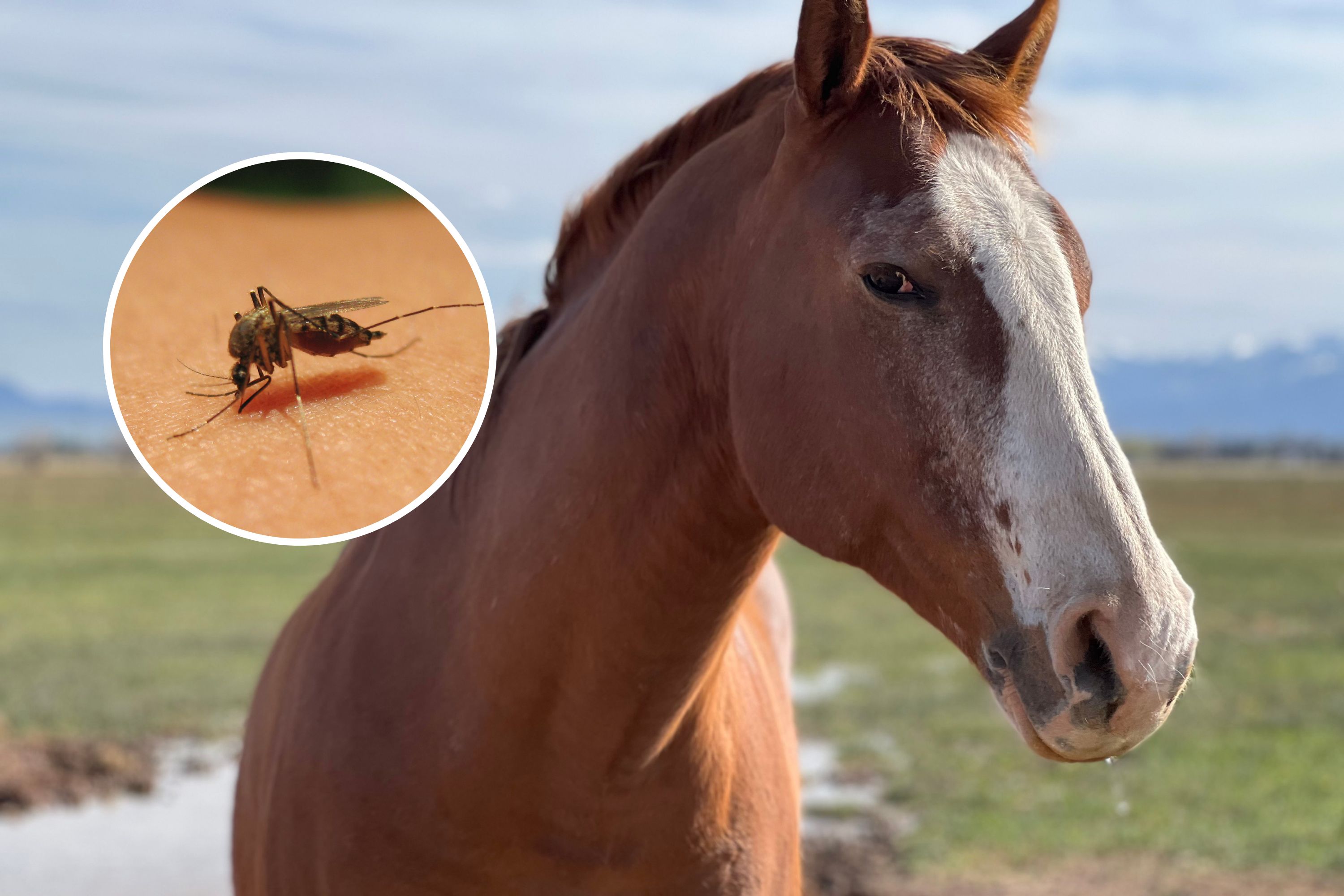A lethal horse virus is making waves in Florida, with a surge in infections surpassing the entire tally for 2023.
So far in 2024, there have been 19 recorded cases of Eastern Equine Encephalitis (EEE), with 10 occurring in June and three more in July. In contrast, last year saw just 17 cases in total. The virus isn’t just a threat to horses; it can also affect humans, leading to a serious disease that has a death rate of up to one in three, as per the Centers for Disease Control and Prevention (CDC).
EEE is mainly spread by the bites of infected mosquitoes from the Aedes, Coquillettidia, and Culex families. These mosquitoes spread the virus from infected birds to other animals, injecting the virus through their bites.
It’s important to note that EEE isn’t transmitted directly among horses, from horses to humans, or from birds to humans. The mosquito plays a key role, requiring the virus to come from birds, with humans and horses acting as “dead-end” hosts.
According to the Florida Department of Agriculture and Consumer Services, positive cases have surfaced in various counties: three in Holmes County, two each in Alachua, Levy, Madison, Marion, and Osceola Counties, and one in Columbia, Duval, Highlands, Jackson, Polk, and Suwannee Counties.
This virus is serious for both horses and humans. In horses, EEE can trigger severe neurological issues, including fever, circling, trouble swallowing, severe depression, and loss of coordination. A staggering 90% of infected horses may not survive, as reported by UC Davis Veterinary Medicine.
“We rarely see mild cases,” said Brittany Welch, an associate vet at the Equine Medical Center of Ocala, in an interview with Florida news station WCJB. “While some do survive, it’s usually preventable, and the cases we see are quite serious.”
About 4% of humans infected with EEE show symptoms, which can resemble mild flu-like signs, such as fever and chills. Symptoms typically show up within a week of infection.
Occasionally, EEE can escalate to severe neurological diseases, leading to encephalitis (brain inflammation).
The CDC notes that around 4–5% of human EEE virus infections result in the disease. Symptoms for this can include high fever, headaches, neck stiffness, confusion, seizures, and coma. The situation can be fatal or result in lasting neurological issues.
“About 30-45% of EEE-related encephalitis cases can end in death, making it one of the more severe mosquito-borne illnesses in the U.S.,” according to Florida Health.

On average, the U.S. sees around 11 human cases of EEE each year, mainly in the Southeast and along the East Coast. No human cases have yet been reported in 2024.
The CDC adds that EEE virus transmission occurs frequently in and around freshwater hardwood swamps in the Atlantic, Gulf Coast states, and the Great Lakes region.
Currently, there’s no specific antiviral treatment for EEE; management focuses on relieving symptoms. While there’s no human vaccine, horses can be vaccinated to prevent infection.
“The vaccine works well to prevent the disease, so most cases of EEE we encounter are in unvaccinated or improperly vaccinated horses,” Welch pointed out.
For humans, using insect repellent and wearing protective clothing are good strategies for prevention.
